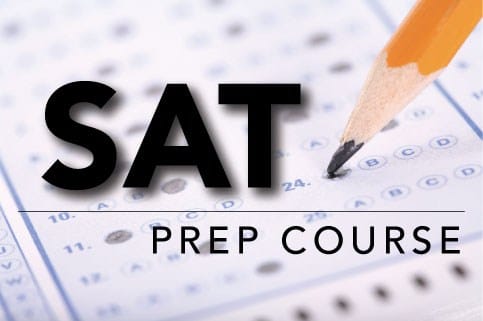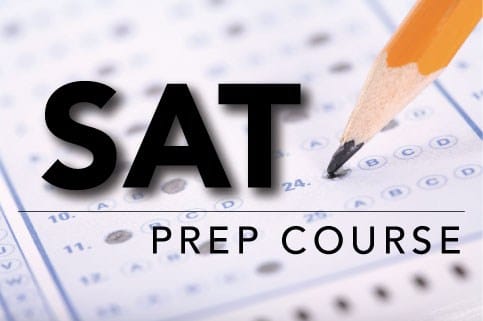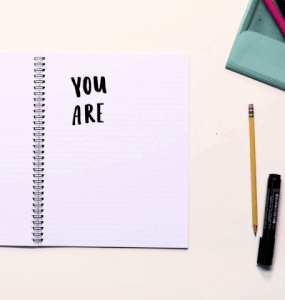SAT | Nov 16, 2021
Using Summer time for ACT and SAT Preparation

As your senior year approaches, you are ready to blast past all the standardized tests. You need to figure out the most productive study schedule that leaves you time for summer jobs, eating embarrassing amounts of ice cream, and acquiring unfathomable tans.
Get the most out of your summer study before your SAT or ACT test! Here is the five step process you can follow!
The First Step: Define Your Goal
Knowing how much you need to improve is the first step to creating a study plan. With your college admission goals in mind, you can determine your target SAT and ACT scores.
You should Google the SAT or ACT scores of your college of choice to find the score range of the middle 50 percent of accepted students - in other words, the 25th percentile and the 75th percentile scores. If you want to increase your chances of acceptance, aim for the 75th percentile score (as good as 75 percent of admitted applicants).
To figure out how you will do on the real test, take a practice test, or, if you have already taken the SAT or ACT, you can use the score to gauge how you will perform. For those of you who have significantly improved since their last test and need a new baseline score, here are links to free practice tests for the SAT and ACT.
The Second Step: Determine the amount of time you should spend studying
After determining your baseline and target scores, you can use the difference between them to estimate the amount of time you will need to study to reach your goals by the time of your SAT/ACT test.
Based on the number of study hours, here is an estimated point improvement for the SAT:
Improvement for SAT Composite Score of 0-30: 10 hours
Improvement for SAT Composite Score of 30-70: 20 hours
Improvement for SAT Composite Score of 70-130: 40 hours
Improvement for SAT Composite Score of 130-200: 80 hours
Improvement for SAT Composite Score of 200-330: 150 hours+
The same information is relevant for the ACT:
Improvement for ACT Composite Score of 0-1: 10 hours
Improvement for ACT Composite Score of 1-2: 20 hours
Improvement for ACT Composite Score of 2-4: 40 hours
Improvement for ACT Composite Score of 4-6: 80 hours
Improvement for ACT Composite Score of 6-9: 150 hours+
There are a few wiggle room factors in these estimates, so do not assume it applies to everyone. Thus, the next step will be to adjust the number of hours you study during the summer, based on your needs.
The third step is to take your learning style and study habits into consideration.
Now you know roughly how many hours you should study. However, depending on how you process information and how focused you are, you may need to study for more or less time. Consider these considerations when deciding how many study hours to add or remove from your plan.
It will take more time to study if you are...
Getting distracted easily - If you have trouble concentrating, you probably do not get as much out of your study time. Find a quiet place where your phone is turned off and spend your study time there. Stagger your time instead of studying in large chunks if you cannot focus for hours at a time.
Having trouble staying on time on the test- The better you understand the test questions and their structure, the less stressed you will be about getting behind. Studying enough to feel comfortable with the test material will lessen your risk of getting psyched out.
Learning from mistakes is a long process – It can be difficult to apply what you learn from your mistakes to future situations when you are taking a standardized test. The amount of time you need to study may depend on how well you are able to identify and understand your mistakes.
Studying a lot without seeing much improvement? In this case, maybe it is time to change your study methods and dedicate more time to your studies. Think about what you have been doing in the past. If you just take practice tests with no real interest in understanding your incorrect answers, you are unlikely to see significant improvements in your grades.
It is better to study for a shorter amount of time if...
Your concentration when studying is very high. It might not be necessary for you to set aside as much time when you are studying if you get really into it.
The sections of the application can be finished quickly for you -- you understand the questions well enough to handle them all, so you have already covered one of the most difficult aspects of the test.
It takes only one mistake for you to learn the right way to answer a question. You probably do not need as much study time as the average student if you only need to answer a question incorrectly once to learn the proper answer.
It is your first time taking the test—you're unlikely to have taken one before, but even if you have not studied a lot thus far, you will be able to improve faster.
The Fourth step: During the summer months and during the fall testing periods, spread out your estimated hours
Next, determine how you will fit your studies into your schedule - you know approximately how many hours you need to study, but what will you do to make that work?
You have until October for the SAT and September for the ACT if you are planning to take the test on the first test date in the fall.
For those interested in taking a test late this summer, the SAT will be offered in August, while the ACT will be offered in July. These dates are still good benchmarks even if you read this later since the tests occur around the same time every year.
Assuming you begin taking classes after the summer, you have about three months to study, with a little more time once school starts again. In order to avoid being overwhelmed, it's best to spread your hours out weekly as much as possible.
These are some examples of how you might improve different points:
My goal is to improve by 30-70 points on the SAT or 1-2 points on the ACT
During the course of three months, you will spend approximately 20 hours studying. Ensure you set aside between one and two hours per week for studying. I estimate that you will have spent at least 20 hours studying by the end of the summer.
You will need to study about 30 hours over the summer plus the time you can squeeze in during the fall before your final test. If you think you will need more than that, two hours a week for the summer will give you around 30 hours to study.
It would be great to improve my SAT score by 130-200 points or my ACT score by 4-6 points
Studying for 80 hours will be necessary to achieve this level of improvement, so you'll need to be more disciplined.
Every week, dedicate one afternoon to studying. You will earn close to 80 hours if you work five hours a week for the whole summer. If it still feels like you need more time before the test, you can study for a little longer in the fall.
I wish to improve by 200-330 points on the SAT or by 6-9 points on the ACT
It is still going to take a substantial amount of effort on your part to make the improvements you want regardless of how good your studying habits are. Summer is a challenging time for students, but it's not impossible to study for 150 hours.
As a result, we recommend you schedule 10 hours of studying a week. You can either sit in a comfy chair in a café or go outside as you do it. It may sound like a lot of work, but it is less than two days of school.
The Fifth Step: Follow Your Study Plan, But make It Adaptable
Once you have your plan in place, now is the time to get going! Having scheduled your study time ahead of time, you are committed to completing it. Despite this, if conflicts do arise (and they certainly will! ), it is important to roll with the punches.
If you choose a part-time job, you may end up traveling with your family or camping with your friends. Regardless of how many days or weeks you skip, don't let studying slip through the cracks. Take advantage of the summer in other ways while maintaining your goals by sliding your study schedule around.
You can also change your plans if you do not feel like you are getting anywhere with your current methods or if you think you have to study more. If you want to see real improvement, you may have to remain flexible when it comes to your study strategies. Ask yourself if you are getting what you want from your study time, and whether you need to change your methods or study habits.
Your summer will be fun and productive as long as you stay flexible and committed!
Want access to expert academic guidance — for free? When you create your free Vnaya account you will have an option to ask a Question, Book a Demo session, talk to our Academic Experts, and get Professional Parenting Support all for Free! Our Academic Counselor will help you learn how to improve your academic performance by assessing your learning style and curating a personalized lesson plan for you!
Sign up for your Vnaya account today to get a boost on your academic quest.
















Post a Comment: